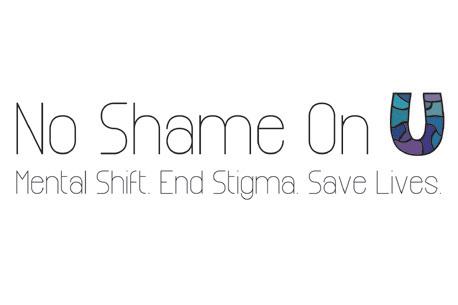You Are Not Alone



When you learn about the death of a loved one by suicide, you may feel stunned, confused, angry or betrayed and quite possibly several emotions at one time. Many people experience intense feelings of shock, abandonment, waves of deep despair, bitter guilt, or isolation.
These are all typical reactions. Physical symptoms like extreme exhaustion, nervous energy, panic attacks or an intensification of ongoing conditions are all possible.
News of a death by suicide is almost always sudden and unexpected. In the immediate aftermath you may need to speak with police or respond to media inquiries. Discussing with family members about how to present the death sometimes creates conflict and there may be a tendency to direct blame. We encourage you to call a trusted friend or family member, rabbi, cantor or mental health professional to help you through the initial aftershock and beyond.
Individuals and families coping with this kind of loss often need more support, but may receive less. We hope what follows gently guides you and your family and friends through the grieving process and reassures you that you are not alone.
I’m the lucky one who knew you, who still loves you whose life will forever be divided into a ‘before’ and an ‘after’ because of you.
You may be hesitant to share that your loved one took their own life. Some survivors find that, in the long run, they are glad that they decided to be honest about the facts of the death because holding secrets can be a burden. Being truthful allows you to define the narrative of your loved one’s life and how you want the person to be remembered.
Grief is like the ocean. It comes in waves, ebbing and flowing. Sometimes the water is calm and sometimes it is overwhelming. All we can do is learn how to swim.
- Vicki Harrison, AuthorParents or guardians are often faced with the difficult decision of what to tell their children about death. You may not (or not yet) wish to share the nature of your loved one’s death with your children, but keep in mind that it’s very possible that they will overhear adults discussing or speculating about the nature of the death. School social workers, mental health professionals and clergy can help children and teens process their feelings, and provide ways to cope with their loss.
When explaining suicide to a child or teen, provide truthful information, encourage questions, and offer loving comfort.
• Reassure children that nothing they said or did caused anyone else to take their own life.
• With younger children, be prepared to talk about the suicide multiple times during the first days and weeks.
• Teens may be especially reticent or silent. Your ability to share your reflections, or sit quietly with them in their grief will be appreciated.
Because everyone is different – even those in the same family – each person will be affected in his or her own way. Individuals have their own experience of other losses, differing levels of support and their unique relationship with the person who has died.
In an effort to understand, you may replay the final moments or have recurring thoughts about the death of your loved one and the surrounding circumstances. Accepting that no one can control the actions of another may be difficult to acknowledge.
Kavod Ha-MetJudaism teaches that honor, respect and caring for a person who has died is one of the greatest mitzvot (commandments). Jewish tradition offers mourning practices (including shiva, yizkor and yahrzeit) to shape the grieving process and build in community support.
Some mourners observe these rituals in strict adherence to tradition. Others choose to observe only some. A rabbi, cantor or one of our community chaplains can be helpful in providing information, support and guidance.
Shiva and other memorial observances can be structured to give all mourners and one’s extended family and circle of friends, a time to continue to share thoughts and feelings about their loved one.
For many, grieving and recovery are active processes. Taking steps toward your own healing may help you feel better as you move into your ‘new normal’. Strategies and activities to consider:
1. Take things one day at a time
2. Seek individual counseling and grief support groups
3. Connect spiritually through prayer, meditation and mindfulness
4. Try journal writing
5. Be mindful about healthy eating, exercise and sleep habits
6. Structure your day and stay busy
7. Find soothing techniques for relaxation and self-care
8. Build a support system and minimize isolation
9. Explore new hobbies
10. Honor and remember your loved one in ways that are meaningful to you. For example: visit the cemetery, make a quilt of favorite shirts, plant a tree, or set up a memorial fund
JCFS Chicago provides individual, couples, and family counseling, along with support groups that bring together members of the community who are mourning a death of a loved one. Our community chaplains are also available for emotional and spiritual support. Call 855.275.5237
No Shame On U is dedicated to eliminating the stigma associated with mental health conditions and raising awareness.

MISSD is a foundation dedicated to the memory of Stewart Dolin and provides education and training to prevent medication-induced suicide, also known as akathisia.

If you or someone you know is in crisis, call or text 24/7 to 988, the Suicide and Crisis Lifeline, to speak with a trained counselor. noshameonu.org missd.co
JCFS Chicago, MISSD (The Medication-Induced Suicide Prevention and Education Foundation in Memory of Stewart Dolin) and No Shame On U are partnering to provide suicide prevention education and support in the Jewish community with support from JUF’s Breakthrough Fund.
JCFS Chicago is a partner with the Jewish United Fund in serving our community. We embrace diversity. Our commitment to inclusivity is woven throughout our services, programs and welcoming workplace.